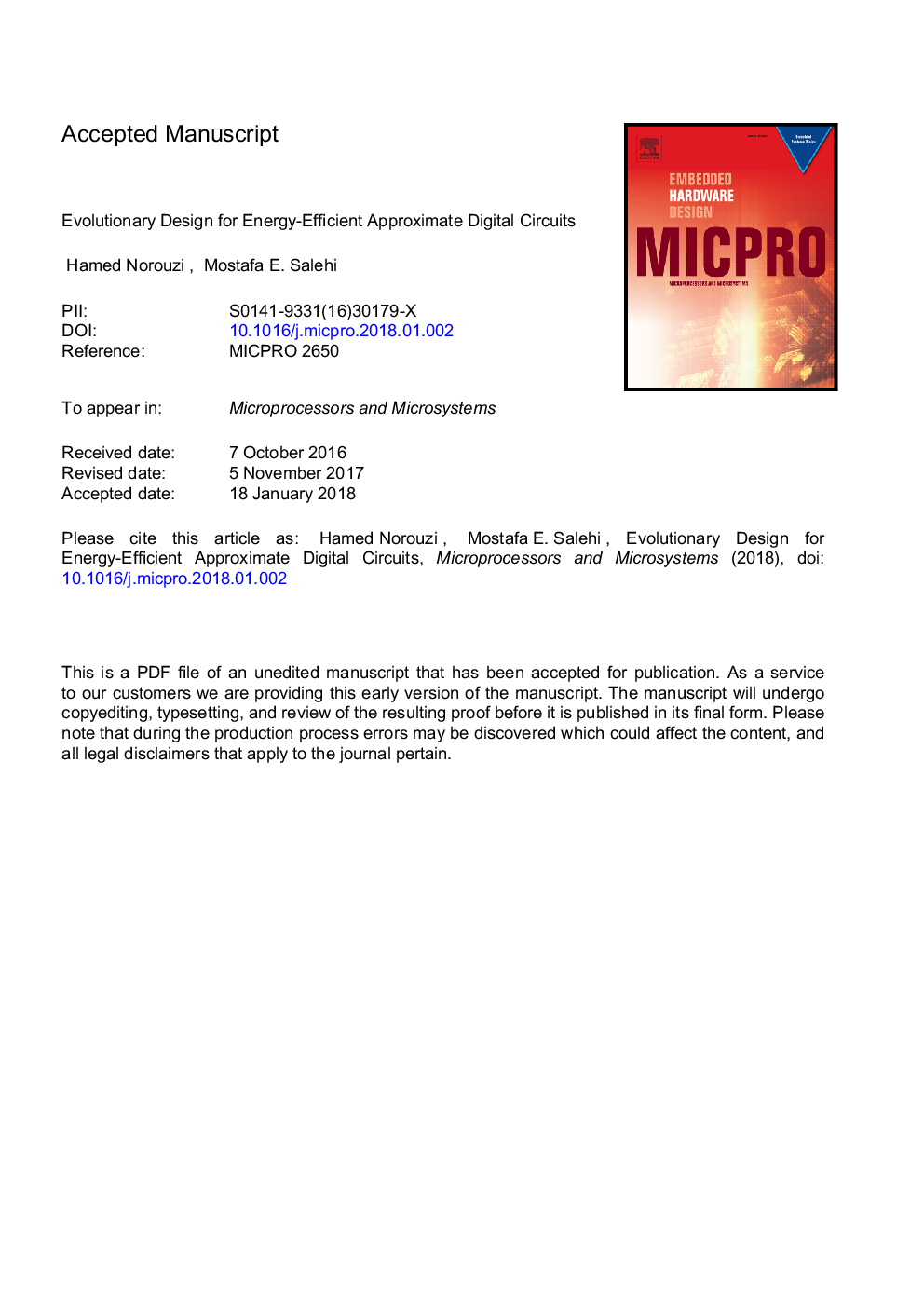| Article ID | Journal | Published Year | Pages | File Type |
|---|---|---|---|---|
| 6885915 | Microprocessors and Microsystems | 2018 | 16 Pages |
Abstract
Energy and computation efficiency are of the major concerns in ever-growing embedded systems. Approximate computing as a new design methodology trades precision for energy efficiency. Evolutionary algorithms as an optimization approach would explore the possible space of the solution to find the best and efficient solutions and hence, are compatible with approximate computing objectives. This paper exploits Cartesian Genetic Programming (CGP) as a powerful design approach to bring novel and newfound approximate solutions. Our contributions are twofold: First, proposing a new simple yet effective seeding approach for CGP which decreases the evolution time and computational effort and also increases the precision of the resulted evolved circuits. Second, proposing an offline pre-evolution approach in order to reduce the complexity of design and hence, make it possible to use CGP for designing more complex problems. The results of evolving arithmetic benchmarks show improvement of the proposed seeding technique both in precision of evolved circuits and also the required computational effort. Also, exploiting the pre-evolution approach for multiplier benchmark reduce the size of truth tables over 94% and not only make it possible to use CGP to design larger multipliers, but also breaks down the power delay product (PDP) parameter more than 65% in compression with some state of the art approximate and exact multipliers.
Keywords
Related Topics
Physical Sciences and Engineering
Computer Science
Computer Networks and Communications
Authors
Hamed Norouzi, Mostafa E. Salehi,
